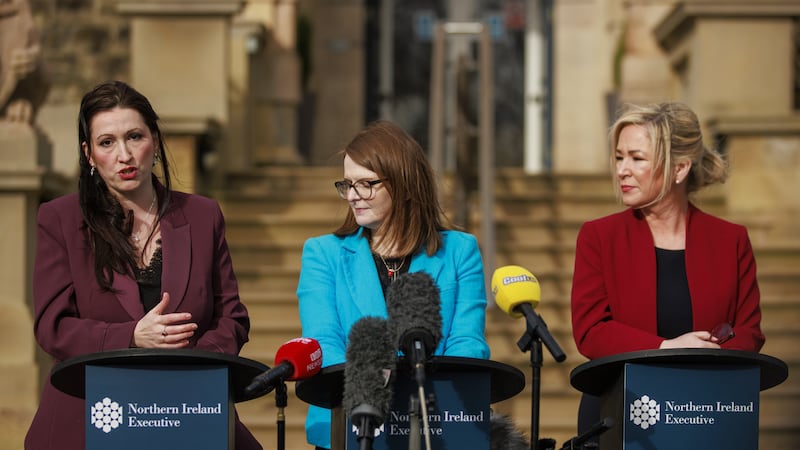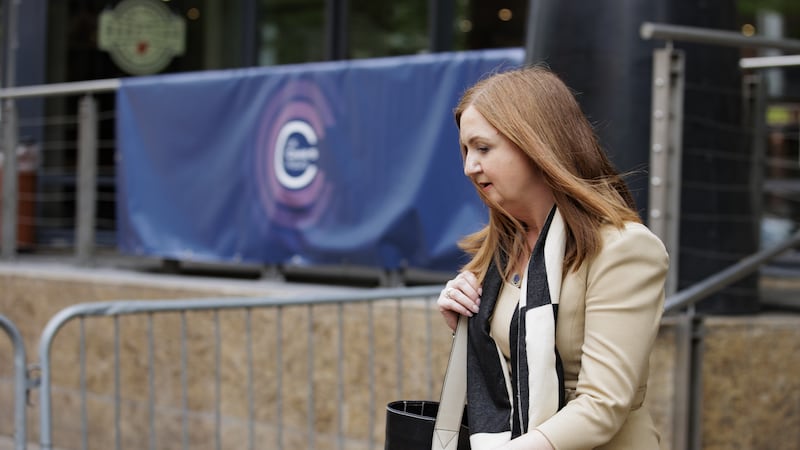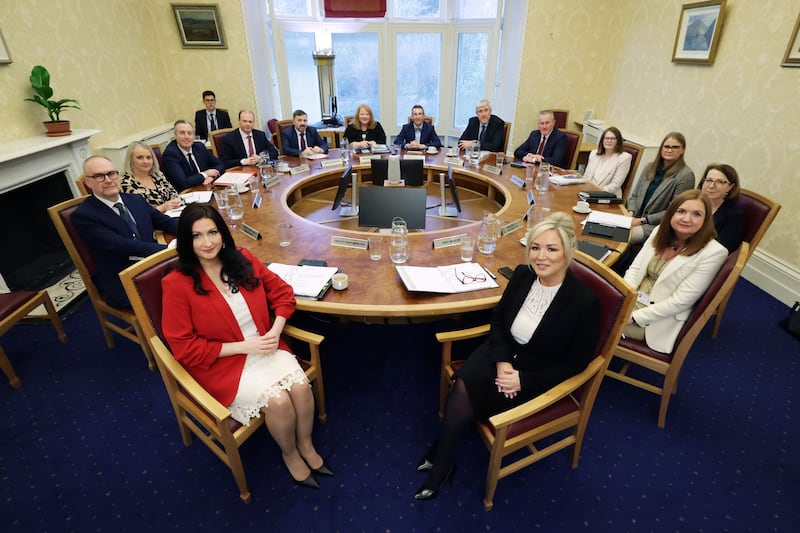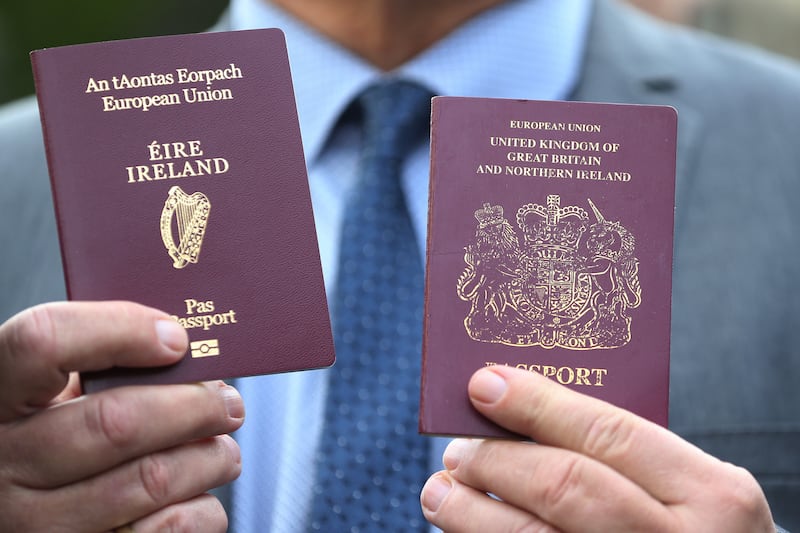The fundamental problem with the DUP’s new election strategy is that it will take this entire article just to explain the party’s stance on winning, regardless of what it might want to do in office.
First minister Paul Givan says the DUP’s manifesto will set out tests on the operation of the protocol that will have to be met before his party returns to government.
This ploy is necessary because the DUP has run out of time for its original strategy, which was to take whatever mitigations emerged from UK-EU talks and spin them as a win.
Negotiations that had been expected to conclude by Christmas could now drag on until Stormont rises at the end of March for the May 5 election. So the DUP has found a way to extend its phoney threat to quit to cover the pre- and post-election periods.
Under the law as it currently stands, there are only two weeks after an election to form an executive. Even the DUP cannot pretend it is setting the EU tests with a two-week deadline.
However, the law is about to change. Reforms to make Stormont more stable, agreed in New Decade, New Approach, will extend the executive formation period to six months after an election, during which the previous ministers remain in place in a caretaker capacity.
These reforms are best known for creating a separate six-month breathing space if one of the two main parties walks outs, in order to prevent a repeat of the 2017 collapse. Instead, reform could facilitate an extraordinary scenario where Givan tries hanging on as acting first minister, after losing an election to Sinn Féin, in order to threaten a collapse.
Although the assembly would get a vote every six weeks to end this farce it requires cross-community support, so if the DUP remained large enough to qualify for one of the top two executive spots it could in theory prolong this post-election limbo until next November. Other parties would almost certainly withdraw their caretaker ministers and demand the secretary of state use his power to cut the six-month period short - but the blame for collapse could then be pinned on them.
Legislation to enact the reforms should have been on the statute books months ago. It is still in its final stages in the House of Lords because unionist peers have been tacking on grandstanding amendments against the protocol. Once passed, the law will take a further two months to come into effect but even at this snail’s pace it should be in force by May.
It all has the feel of one of Peter Robinson’s ‘clever devices’. The former DUP leader has been brought back into headquarters as an adviser and has been keeping up a drumbeat of threats to devolution in his News Letter column.
The DUP triumphed in elections leading up to the St Andrews agreement under the slogan “it’s time for a fair deal”. But the party was a serious player at St Andrews, while it is just a spectator over the protocol. It had a positive message of restoring devolution, which had collapsed years previously under the leadership of others. Now it is seeking votes to threaten a crisis over matters that very much occurred on its watch.
A more apt comparison with previous DUP manoeuvres would be the 2015 ‘hokey cokey’ of rotating ministerial resignations, which become a laughing stock when London called Robinson’s bluff. Jeffrey Donaldson has already hinted at a pre-election hokey cokey, telling Radio Ulster he will “put in place measures” to deal with the pandemic if his ministers quit the executive.
Alongside all this is the refusal of any unionist party to confirm it will serve as ‘deputy’ to Sinn Féin. Does that test rank above or below tests of the protocol?
You only need to try devising a slogan for next May’s campaign to see the absurdity and incomprehensible complexity of the DUP’s platform.
If it opts for a Saatchi-style “the protocol isn’t working” it will need to add a question mark, as the end point of the plan is still to claim the protocol is working once there are sufficient sea border mitigations.
If a question sounds weak it could be turned into a challenge, as US presidential candidate Walter Mondale did with “where’s the beef?”
Perhaps election posters will ask “where the sausage?”
The DUP’s clever devices have always been too clever by half. This one is so clever, it is barely distinguishable from stupidity.







